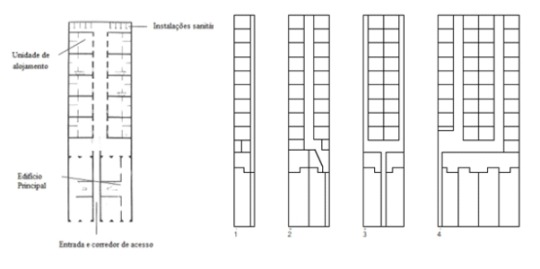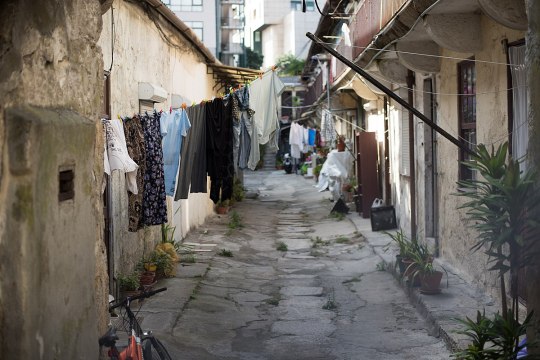#this has that “medieval peasants living in huts made of mud and dying at age 20” kind of vibe
Text
IT'S TIME!!! IT'S FINALLY TIME FOR THE RANT ABOUT 19TH-CENTURY PORTUGUESE URBANISM!!!! (@kingkendrick7 mentioned they were interested a While ago and who am I to withhold information about my Interests)
I'll be focusing exclusively on the city of Porto in northern Portugal because it's what I studied in my Anthropology class. And also: disclaimer! I'm translating all the names of the things from Portuguese so if it sounds weird, yeah, that's why.
The Industrial Revolution in Portugal created a very weird relationship between work and personal life due to the way the cities were planned. Basically, the people who worked the factories, and even the owners, lived extremely close to their place of work - and I mean they were pretty much neighbours. The factories were also built in the city centre itself. This is much more similar to the work-life relationship of rural areas than any model existing in normal cities.
There was, at this time, a strange impasse when it came to building housing. Porto specifically is known for having extremely thin and deep plots of land in the oldest parts of the city - I'm talking 5 by 100m (approx. 16 by 328ft). No house is gonna be that deep, so there's always about 80 to 70m of backyard.
Workers were paid extremely low wages. Like, so low they couldn't afford housing anywhere. So the factory owners would ✨selflessly✨ give up their backyards and build housing for their workers.
Can we just take a moment to think about how absurd this is? Like. Imagine taking pity on your employees for being poor. My brother in Christ, WHO DO YOU THINK IS MAKING THEM POOR?
Anyway, this new type of housing is called an Island. Its name comes from the fact that it's an "island" of low-income housing in a semi-rich neighbourhood.
Basically, an Island is a long exterior corridor with tiny houses on one or two sides and communal bathrooms at the end. Here's a picture:

The way this worked is that the owners of the big, street-front house would open a passage on the ground floor that could be fully closed wuth a gate. This kept the Islands invisible and, thus, out of the city hall's jurisdiction, since they can only legislate on what is visible from street level.
Here's an irl picture of an Island today:

Btw they tried solving this problem bt building houses from scratch but they realuzed that workers' wages were so low that just adding plumbing would make a house unaffordable. Yeah...
Porto currently stands as the European city with the most recent outbreak of the Bubonic Plague, in 1899. This is because Islands had such poor hygenic conditions that it re-kindled the Black Plague epidemic. Just so you can kinda picture what level of "horrible" this whole thing is.
Here's a quote by David Moreira da Silva about the Islands that I translated from French:
"Housing, essential organ of the city, offers us in Porto obe of the most miserable and tragic displays and one of the grave causes that greatly contribute to the huge mortality that is constant. We say, justly, that Porto as a city is the vastest cemetery in Europe."
(Parallel to this there was also the "Sleep Business", which consisted of renting places to sleep. The main two were sub-renting, in which you rented a place to sleep and paid by the hour, and the Rope, in which you rented a piece of rope to lean on while sleeping. Thought it might be interesting to add.)
I'm not mentioning as we go because it'd be exhausting, but backlash was VERY strong every step of the way. Doctors were warning against living conditions in the Islands and city hall was trying to pass laws banning these types of buildings by extending their jurisdiction deeper into the city's plots of land. But they were unsuccessful.
They tried to propose a rehabilitation of the Islands in the early 20th century but their inhabitants basically responded with "Please tear our houses down and make us new ones somewhere else. The Islands are unsalvageable".
The whole factory work-life thing ended with the fascist dictatorship, which reorganized the city centre, but there's still plenty of people living in Islands today.
To this day, the Islands stand as a warning of what rampant capitalism does to people when left unchecked. But that doesn't stop tone-deaf bourgeois pricks from romanticizing them.
This has been a rant. I hope you enjoyed it <3
#this is technically related to the dystopia WIP so i'll tag as such#actually i feel like this kinda counts as worldbuilding inspo#bc it was for me#i studied a few cities in anthropology and this was one of my favourites#capitalism is fucking fascinating man#if you wrote this in a fictional dystopia people would call bullshit#this has that “medieval peasants living in huts made of mud and dying at age 20” kind of vibe#capitalism#worldbuilding#worldbuilding inspo#can i cite sources?#no. my professor never tells us where he gets information#this is all from notes i took during class#if u wanna add anything go ahead! i love learning#doesn't need to be about the islands#technically not writing#writeblr#ramblings#the Interest has consumed me#the dystopia wip#portugal ramblies
12 notes
·
View notes